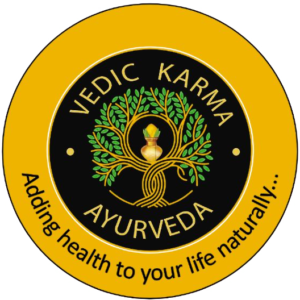Gastric Issues
Gastric issues encompass various diseases affecting organs within the digestive system, such as the stomach, intestine, esophagus, and rectum. Maintaining a healthy digestive system is crucial for overall well-being as it facilities the absorption of nutrients, and the elimination of toxins, and waste from the body.
Unhealthy habits like smoking, inadequate sleep and excessive consumption of fried or calorie-rich foods increase the risk of developing gastric problems like peptic ulcers, acidity, gastroenteritis, constipation, bloating, and vomiting.
- We strive to bring out the best
- Beauty & glam can be perfect
- Brings out the best in you
- Live every moment beauty

Improper management of gastric problems can lead to further complications and other health issues. Even regular use of medications like paracetamol or aspirin can contribute to gastric problems. Mild gastric problems can often be alleviated with simple home remedies. However, when gastric issues become acute. Antacid drugs are commonly used to control hyperacidity and certain gastric problems. However, this medication can also have side effects such as rebound acidity or constipation.
Additionally, antacids containing minerals may interact with other concurrently taken medication. According to Ayurveda, the health of the digestive system is primary determinant of long term well-being healthy digestion enable the body to generate healthy tissue muscles , blood , and nerves , rendering the body more susceptible to disease. Ayurvedic therapies for managing gastric problems aim to restore balance to the doshas (bioenergestic forces) and improve digestion.
Gastric issue depends on what type of digestive tract a person has. In Ayurveda, digestive tract is known as koshtha, which is of 3 types:
1. Krura (Hard) (Predominance of Vata): produces hard feces, difficulty of elimination or even non elimination.
2. Mridu (Soft) (Predominance of Pitta): causes watery or semisolid feces, moving out more than once or twice per day.
3. Madhya (Moderate) (Predominance of Kapha): Causes soft solid feces, moving out smoothly.
Which are regulated by 4 types of Jatharagni:
1. Vishmagni (Predominance of Vata)
2. Teekshanagni (Predominance of Pitta)
3. Mandagni (Predominance of Kapha)
4. Samagni (All doshas in balance)
In addition to it 5 types of bhutagni, 7 types of dhatwagni play a vital role (which include metabolism at cellular level)
These Koshthas and Agni, get affected by various causes such as:
1. Spicy foods, chilly, oily foods, medicines, tobacoo and alcohol
2. Irregular food habits and sleeping patterns.
3. Medications such as pain killers, antibiotics, oral contraceptives and steroids
4. Intestinal Parasites
5. Diseases of pancreas, liver, gall bladder, intestinal infections etc.
6. During Pregnancy, premenstrual period, menopausal period in women
7. Emotional upset like anxiety, stress, educational study pressures. family tensions etc.
Ayurvedic Treatment For Gastric Issues:
Ayurveda offers various treatments for Gastric issues by addressing the root cause of the issue and restoring the balance of digestive system.
Treatments:
1. Langhnama: Fasting like Light Food or only liquid diet once a week: It increases digestion, clears ama (undigested food which turn up to toxins) from the body- it is a simple detoxification that can be practiced at home.
2. Exercise- Yoga: Regular exercise improves appetite and digestion. Yoga- Asanas that specially involve abdominal muscles. Such as Tadasana, Bhujangasana, Supta-Pawan Mukta Asana, Vajrasana, Utkatasana,Surya Namaskar etc., help in maintaining normal Agni
3. Practice relaxation techniques- Yoga, pranayama, soothing music, meditation and prayers relief stress and Anxiety.
4. Avipattikar churna and Pittashekhar Ras, in case of acidity.
5. Chitrakadi Vati and Agnitudi vadi depending on presence of Ama doshas.
6. Shodhana (Vamana or Virechana), in case of chronic disease.
The exact treatment is done by ayurvedic practitioner depending upon koshta-Agni-vyadhibala (disease intensity) through Panchakarma- detoxifications, as and when required, oral medicines are given.

